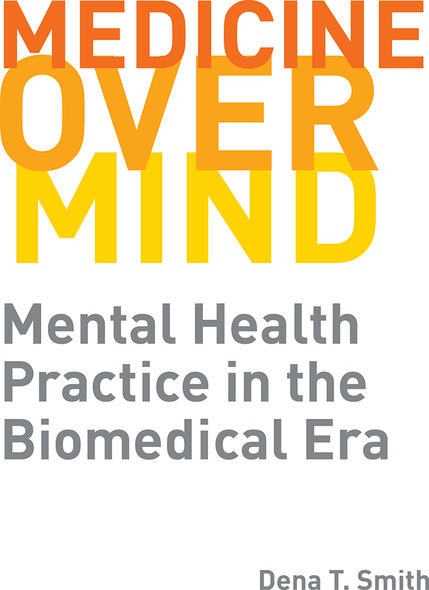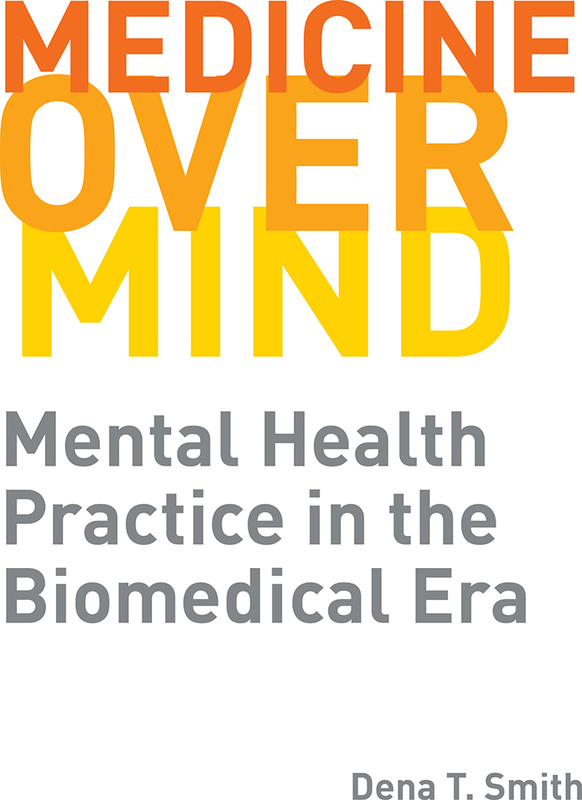
230 pages, 6 x 9
2 tables
Paperback
Release Date:13 Sep 2019
ISBN:9780813598666
Hardcover
Release Date:13 Sep 2019
ISBN:9780813598673
Medicine over Mind
Mental Health Practice in the Biomedical Era
Rutgers University Press
We live in an era in which medicalization—the process of conceptualizing and treating a wide range of human experiences as medical problems in need of medical treatment—of mental health troubles has been settled for several decades. Yet little is known about how this biomedical framework affects practitioners’ experiences. Using interviews with forty-three practitioners in the New York City area, this book offers insight into how the medical model maintains its dominant role in mental health treatment. Smith explores how practitioners grapple with available treatment models, and make sense of a field that has shifted rapidly in just a few decades. This is a book about practitioners working in a medicalized field; for some practitioners this is a straightforward and relatively tension-free existence while for others, who believe in and practice in-depth talk therapy, the biomedical perspective is much more challenging and causes personal and professional strains.
This is a compelling project. Too often sociologists assume that the blueprint laid out by the DSM is equivalent to practice. This colors our discussions of medicalization in general, perhaps leading us to overstate its reach and breadth and obscuring the ways it is negotiated in practice. By delving more deeply into these practices – and the reasoning behind them – Smith’s research has great potential to bring nuance to the discussion of medicalization. The book wants to go beneath our general discussions of medicalization to see how it plays out in practice. Through a comparison of three groups of clinicians, she reveals the distinct dilemmas clinicians face, as well as their responses to the prevailing paradigm in practice. These play out in often unanticipated ways.'
Dena Smith provides us with an analysis of the medicalization of mental disorder, and its impact on the conceptions and treatments in psychiatry. Basing her work on 43 interviews with mental health professionals, Smith provides new insights on the role of medicalized perspectives on psychiatric work.’
Highly recommended.
DENA T. SMITH is an assistant professor of sociology at The University of Maryland—Baltimore County where she teaches the sociology of mental health and illness, and medical sociology.
From meaning-making to medicalization
Practitioner portraits and pathways to practice
The promise of 'imperfect communication' and the 'prison' of rigid categorization : the DSM in practice
Etiological considerations and the tools of the trade : the role of medication and talk therapy in practice
The consequences of the biomedical model for practice and practitioners : psychodynamic therapy in a biomedical world
Conclusion : the dangling conversation : ambiguity in mental health practice
Practitioner portraits and pathways to practice
The promise of 'imperfect communication' and the 'prison' of rigid categorization : the DSM in practice
Etiological considerations and the tools of the trade : the role of medication and talk therapy in practice
The consequences of the biomedical model for practice and practitioners : psychodynamic therapy in a biomedical world
Conclusion : the dangling conversation : ambiguity in mental health practice





